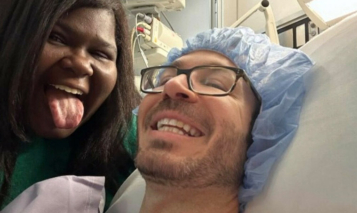
Ciara urged Black women to get regular cervical cancer screenings as she notes that Black women are “twice as likely to die from cervical cancer than white women.”
In an op-ed for NBC at the start of Black History Month, Ciara wrote that Black women should get regular PAP smear screenings as part of “self-care”.
She wrote that Black women are twice as likely to die from cervical cancer than white women,” and it’s “not because of biology.”
The 36-year-old mother-of-three blamed “health disparities” and “systemic racism” for higher cervical cancer rates among Black women.

“It’s because of health care disparities, systemic racism and long-held inequities,” she wrote, adding, “This must change.”
Ciara said Black women should prioritize our own health care since we are invisible to the medical establishment.
She revealed that a member of her team received a cervical cancer diagnosis. Her friend’s diagnosis hit home for her.
“The good news is that she prioritized her self-care and got screened,” Ciara wrote, before adding, “The even better news is that because of early detection, her cancer was treatable, and today she is thriving.”
The part-time singer and homemaker continued:
“As we conclude Cervical Health Awareness Month and enter Black History Month, we should use this moment to prioritize our self-care by taking action to protect our health and encouraging others to do the same.”
Doctors recommend Pap smears along with a pelvic exam beginning at age 21 then every three years until age 65.
A Pap smear combined with HPV testing can be performed every five years for women age 30 and older.
Doctors recommend more frequent Pap smears, regardless of age, if you have the following risk factors:
- A diagnosis of cervical cancer or precancerous cervical cells
- Exposure to diethylstilbestrol (DES) before birth
- HIV infection
- Weakened immune system
- History of smoking
Women who had a total hysterectomy or women older than 65 with previously negative Pap tests can consider stopping Pap screening.
Consult with your doctor to determine the option that is best for you.





